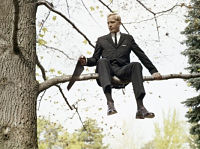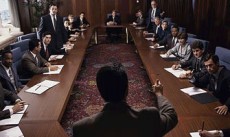Indexes - all Resources

Research Café 2, 2012 – Overview
We hosted our second Research Café on Tuesday 28th February, 2012 at the Institute of Directors on Pall Mall, London. Speaking was Dr Roland Zahn, Medical Research Council Clinician Scientist Fellow and Honorary Consultant Psychiatrist at the University of Manchester and Professor Guy Claxton from the Centre for Real World Learning at the University of Winchester. Dr Zahn spoke on “Variation in the neural architecture of moral...
Written by: zadmincafcon
Read moreThe Hour Between Dog and Wolf: Risk-taking, Gut Feelings and the Biology of Boom and Bust. (2012)
"Coates identifies a feedback loop between testosterone and success that dramatically lowers the fear of risk in men. Similarly, intense failure leads to a rise in levels of cortisol that lowers the appetite for risk. UK - Fourth Estate. USA - Pengiuin. Canada - Random House Dr John Coates is a successful Wall Street trader turned Cambridge neuroscientist “The Hour Between Dog and Wolf” (Penguin, 2012) ...
Written by: Coates, John M.
Read more
The blind leading: Power reduces awareness of constraints. (2012)
"Organizations need to anticipate the tendency of their most powerful members to leap without looking. The remedy is to surround them with people who can see other angles, or can play a devil's advocate role to point out risk Jennifer A. Whitson, University of Texas, McCombs School of Business Katie A. Liljenquist, Brigham Young University, Marriott School of Management Adam D. Galinsky, Columbia University,...
Written by: Whitson, Liljenquist et al.
Read more
Emotional finance theory goes beyond greed, fear, and hope. (2012)
"Emotions triggered by decision making with unpredictable outcomes have a dynamic impact on thought processes." Philip Lawton, author of “Middle office: managing financial institutions in turbulent times.” Published on PRWeb.com. 20 September 2012 “.. studies of investment management written from the perspective of the biological and social sciences are contributing to greater awareness of the human cost o...
Written by: Lawton, Philip.
Read moreWhy narcissistic CEOs kill their companies. (2012)
"Narcissistic CEOs can be... amazingly damaging …in some cases, eventually killing their companies Eric Jackson 11 January 2012, Forbes.com …Organizational researchers may not believe that executive narcissism is of much theoretical or practical significance. They may see executive narcissism as incidental to organizational functioning - annoying to those who must endure it, grist for jokes about self-absorbed CEO...
Written by: Jackson, E.
Read more
Financial reporting frauds: A manifestation of hubris in the C-suite? Some exploratory evidence. (2012)
"The authors investigate the relationship between CEO hubris, a firm’s managerial, governance and market oversight attributes, and a propensity to financial misreporting. Michel Magnan, John Molson School of Business Concordia University, Denis Cormier, Department of Accountancy UQAM, Pascale Lapointe-Antunes, Department of Accounting, Goodman School of Business Management Ethics, Summer/Fall 20...
Written by: Magnan, Cormier and Lapointe-Antunnes.
Read more
Leadership – an elusive concept. (2012)
“Leadership is a word I am most uncomfortable with. It has so many meanings and nuances of meaning, many of which are contradictory …. Wanting a strong leader may be an abrogation of responsibility Harry Gray, Principal of Harry Gray Associates, Whittington, UK The International Journal of Leadership in Public Services Vol. 8 No. 2, 2012 pp. 99-107 The author argues that the word “leadership” is often used too...
Written by: Gray, Harry.
Read more
Gordon Brown now suffers that incurable syndrome: ex-PM. (2011)
"Analysing the psychological impact of power on a leader's personality, Owen points out that these people, with huge doses of daily adrenaline, are in a perpetual state of post-traumatic stress disorder. Simon Jenkins, The Guardian, Thursday 14 July 2011 22.00 BST Since the second world war, only Attlee, Churchill, Douglas-Home and Wilson can be said to have left office in relatively good order. Eden and Macmillan left...
Written by: Jenkins, Simon.
Read moreDominant CEO, deviant strategy, and extreme performance: The moderating role of a powerful board. (2011)
“…it is possible that coupling dominant CEOs with powerful boards represents an ideal governance arrangement.” Jianyun Tang, Memorial University of Newfoundland Mary Crossan & W. Glenn Rowe, Richard Ivey School of Business, The University of Western Ontario Journal of Management Studies, 48(7), 1479-1503 (2011) “...dominant CEOS, powerful in the organization as compared to other members of the top ...
Written by: Tang, J., Crossan, M. & Rowe, W.G.
Read more
Why did Napoleon do it? Hubris, security dilemmas, brinksmanship, and the 1812 Russian campaign. (2011)
"Of all of Napoleon’s blunders, none was more destructive and self-defeating than his decision to invade Russia. So why did Napoleon do it? Of course, Napoleon never imagined such an apocalyptic outcome. Professor William Nester, Department of Government and Politics, St. John's University, New York City. Diplomacy and Statecraft, Volume 22, Issue 4, 2011. Publishers Taylor and Francis Group. Published online 06...
Written by: Nester, William
Read more







